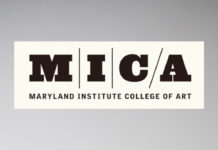Summer Hopwood Contest
Rules of Eligibility
Only students taking writing courses in the spring or summer terms may apply.
All students in the spring/summer term, or in either half of the spring-summer term, who are regularly enrolled in one writing course (2-3 credits) in the Departments of English, Communication, Theatre and Drama, or Screen Arts and Cultures are eligible to compete, except students who have already won a Graduate award in a Hopwood contest. This rule requiring a writing course is unwaivable. A literature course does not qualify a student, nor does a writing course from a previous term.
Eight awards are generally offered, two in each of the four fields of writing—drama or screenplay, nonfiction, short fiction, and poetry. Novels are not admissible in this contest. Prizes may be redistributed in the event that the merit in a particular field makes such redistribution desirable. Entries in each of the four fields are limited as follows:
- No manuscript which has received a prize in any Hopwood contest shall be eligible in these contests.
- No manuscript that wins an award in the summer contest is eligible in any subsequent Hopwood contest.
- Manuscripts in the nonfiction and fiction areas must be between 15–40 pages in length. Poetry manuscripts must be within 10–40 pages, and the limit for screenplay manuscripts is 90–110 pages. Drama manuscripts should be approximately 50–60 pages for a one-act play and approximately 80–100 pages for a full length play.
- No manuscript or part of a manuscript that has been published in a medium other than a college magazine or college newspaper shall be eligible.
- Because of the difficulties multi-media manuscripts present to the judges, they are not acceptable.
Entries should be double-spaced in 10 or 12 point font, with a left-hand margin of at least 1.5 inches. Poems, plays, and screenplays need not be double-spaced throughout. A contestant must use a pen name–entirely different from his or her real name. This name should only appear on the title page, nowhere else in the manuscript.
Submissions should be in PDF format.
The PDF must have a title page on which shall appear:
- The title
- The pen name
- The contest and division entered (e.g., Summer Hopwood Poetry)
The committee reserves the right to keep on file one copy of each winning manuscript. The committee will not be held responsible for the safety of any manuscript presented in the contest.
Note: If you participate in need-based aid programs, be aware that your award is considered a “resource” and could impact your award package.
Announcement of Awards
Names of the winners in this competition will be announced at the end of August. The Summer Hopwood Awards Ceremony will be held in the Hopwood Room on Thursday, September 22 at 3:00 p.m.
Contest Deadline
The deadline for the 2016 Summer Hopwood Contest will be June 24 by 12:00 noon if a student is only enrolled spring half and August 3 by 12:00 noon if he or she is enrolled in both halves or in the summer half only. Contest deadlines are enforced to the minute. Since last minute problems frequently arise, students are urged to turn in their manuscripts early.
The Hopwood Award Theodore Roethke Prize (Fall Term)
The Hopwood Award Theodore Roethke Prize is an award of $5,000 for the best long poem or poetic sequence written by a University of Michigan student, undergraduate or graduate.
Rules of Eligibility
This contest is open to all U-M students, with no particular course or hour requirements. There are the following restrictions:
- There is a 12-page minimum length.
- No student may enter more than one poem or poetic sequence.
- The same poem shall not be entered in any other fall term contest, with the exception of the Roy W. Cowden Memorial Fellowship competition.
- No poem that has won another award may be entered in these contests.
- No student who has won this award may compete again in the contest, nor may a winning poem be subsequently entered in any other Hopwood Program contest, with the exception of fellowship/scholarship contests.
- No poem that has been published in a medium other than a college or high school magazine or newspaper may be entered in the contest.
Manuscript
Entries should be in 10 or 12 point font, with a left-hand margin of at least 1 1/2 inches. A contestant must use a pen name–entirely different from his or her real name. This name should only appear on the title page, nowhere else in the manuscript. Submissions should be in PDF format. The PDF must have a title page on which shall appear:
- The title
- The pen name
- The contest and division entered (e.g., Hopwood Award Theodore Roethke Prize)
If you receive need-based financial aid and would like us to delay payment until the beginning of the Spring term (May) so your award won’t alter your current financial aid allocation, please indicate that on the form.
Prize Deadline
The deadline for submission is absolutely no later than the first Wednesday in December, by noon. All contest deadlines must be enforced to the minute so contestants are strongly urged to turn in their submissions early. The contestants will be notified in January and the Hopwood Award Theodore Roethke Prize will be presented in the April Hopwood Awards Ceremony. For further information, inquire at the Hopwood Room, 1176 Angell Hall (734.764.6296).
Contest Deadline
The deadline for the 2016 Summer Hopwood Contest will be June 24 by 12:00 noon if a student is only enrolled spring half and August 3 by 12:00 noon if he or she is enrolled in both halves or in the summer half only. Contest deadlines are enforced to the minute. Since last minute problems frequently arise, students are urged to turn in their manuscripts early.
Underclassmen (Fall Term)
Rules of Eligibility
Any first or second-year student regularly enrolled in the following courses is eligible for this competition:
- English 124, 125, 223, 225, 226, 301, 302, 323, 325, or 340
- Sweetland Center for Writing, Writing courses carrying at least 2 credits
- Communication 290, 301, or 302
- Great Books 191
- Classical Civilization 101 in the College of Literature, Science, and the Arts
- Residential College courses 100, 220, 221, 222, 300, 325, or 326
Certain other writing courses may also be used to qualify. Check with the Hopwood Assistant Director to determine course eligibility. A contestant may use as a qualifying course one taken in the past two years. Spring/Summer writing courses may also be used for qualification. The rule requiring a writing course is unwaivable. A literature course does not qualify a student.
In this contest three types of writing are eligible: nonfiction, fiction, and poetry. In each of these fields, prizes usually ranging from $500 to $2,000 are awarded. Entries in each of the three fields are limited as follows:
- The page limits for the poetry division are 10–25 pages.
- The page limits for the nonfiction and fiction divisions are 15–40 pages. All non-fictional prose, including creative nonfiction, will be considered in the nonfiction division.
- Pages should be numbered consecutively. The limits are for the TOTAL number of pages in a manuscript. For example, submitting a 6 page story together with a 9 page story would satisfy the short fiction minimum page limit.
- A student may submit manuscripts in more than one field.
- No Underclassmen Contest submission may be entered in any other fall term contest, with the exception of the Cowden Fellowship Contest.
- Only the written portions of mixed-media manuscripts may be submitted.
Entries should be doubled-spaced in 10 or 12 point font, with a left-hand margin of at least one and one-half inches. Poems need not be double-spaced throughout. A contestant must use a pen name–entirely different from his or her real name. This name should only appear on the title page, nowhere else in the manuscript. Submissions should be in PDF format.
The PDF must have a title page on which shall appear:
- The title
- The pen name
- The contest and division entered (e.g., Underclassmen Hopwood Poetry).
The committee reserves the right to keep on file one copy of each winning manuscript. The committee will not be held responsible for the safety of any manuscript presented in the contest.
Note: If you participate in need-based aid programs, be aware that your award is considered a “resource” and could impact your award package.
Contest Deadline
Due no later than 12 noon, the first Wednesday in December. Please be advised the deadline is enforced to the minute.
Announcement of Awards
Names of the winners in this competition will be announced early in the winter term. A manuscript that has received a prize in the Contest for Underclassmen will not be eligible for any subsequent Hopwood contest. The committee reserves the right to keep on file one copy of each winning manuscript.
Graduate and Undergraduate (Winter Term)
Awards are offered in the following genres: Novel, drama, screenplay, nonfiction (any form of nonfiction prose, including creative nonfiction), short fiction and poetry.
Rules of Eligibility
The awards are classified as Graduate Awards or Undergraduate Awards in the nonfiction (any form of nonfiction prose, including creative nonfiction), short fiction, and poetry divisions. The novel, drama, and screenplay divisions are combined categories in which undergraduates and graduate students compete together.
Page limits:
- Novel — 100 page minimum
- Drama — approximately 50–60 pages (one act), 80–100 pages (full length). Two one-act plays may be submitted, but only one full-length play.
- Screenplay — 90–110 pages
- Undergraduate Nonfiction — 15-40 pages
- Undergraduate Short Fiction — 15–40 pages
- Undergraduate Poetry — 10–40 pages
- Graduate Nonfiction —15-50 pages
- Graduate Short Fiction — 15–50 pages
- Graduate Poetry —10–50 pages
Pages should be numbered consecutively. The limits are for the TOTAL number of pages in a manuscript. For example, submitting a 6 page story together with a 9 page story would satisfy the short fiction minimum page limit.
The contest is open to all University of Michigan students, whether candidates for a degree or not, who are regularly enrolled in the University. Undergraduates must carry at least six hours of regular University work each term. Graduate students must also be regularly enrolled in the University and must carry at least 3 credits each term.
To be eligible, a student must have been enrolled in one course in writing for 2–3 credits within the past two years or be taking a writing course in the current term. Courses may be taken in the departments of English, Communication, Theatre and Drama, Screen Arts and Cultures, or in the Residential College (a list of qualifying courses is listed below).
This rule requiring a writing course is unwaivable; a literature course does not qualify a student.
No graduate student may enter the Hopwood Contest for more than a total of four times or re-enter an area in which he or she has previously won an award, though he or she may compete in other areas.
Students who have been enrolled in the fall term but will not be enrolled in the following term (e.g., December graduates) may compete, provided they have fulfilled the above requirements. Such students must submit their manuscripts not later than December 18 by noon. Students studying abroad may submit by noon on the first Friday in February.
No manuscript or part of a manuscript that has received an award in any contest administered by the Hopwood Program may be entered in any subsequent contest. This rule does not apply to contestants in the Cowden, Kasdan, and Miller Scholarship competitions.
The same material may not be submitted in different categories (for example, nonfiction and fiction or short fiction and novel).
Students may submit manuscripts with changes up until the 12 noon deadline.
No manuscript or part of a manuscript that has been published in a medium other than a college magazine or college newspaper may be entered in any contest. However, work that has been accepted for publication but that has not appeared in print by the time of the contest deadline may be entered.
Only original work may be entered in the contest. Collaborations, translations, and adaptations are not acceptable. Only the written portion of mixed-media manuscripts may be submitted.
Except in the case of novels, only completed works (as opposed to works-in-progress) may be submitted.
The committee reserves the right to retain for its files one copy of each winning manuscript.
Each contestant winning an award will be required to sign the following statement: “In case of the publication of the manuscript submitted by me in the Hopwood Contest, and forming the basis for the award I have received, I agree to indicate in a footnote or otherwise that this manuscript was granted a prize in the Avery Hopwood and Jule Hopwood Contest for [year of award] at The University of Michigan.”
Note: If you participate in need-based aid programs, be aware that your award is considered a “resource” and could impact your award package.
Qualifying Courses
Certain writing courses not listed below may also be used as qualifying courses. Check with the Hopwood Assistant Director before the day of the deadline to determine course eligibility.
In the Department of English Language and Literature:
- 124, Academic Writing and Literature
- 125, Writing and Academic Inquiry
- 223, Creative Writing
- 225, Academic Argumentation
- 226, Directed Writing
- 227, Introductory Playwriting
- 229, Professional Writing
- 323, Creative Writing: Fiction
- 324, Creative Writing: Poetry
- 325, Art of the Essay
- 327, Intermediate Playwriting
- 328, Writing and Environment; NELP (New England Literature Program)
- 340, Studies in Poetry
- 398, Junior Seminar in English Studies
- 423, Advanced Fiction Writing
- 424, Advanced Poetry Writing
- 425, Advanced Essay Writing
- 426, Directed Writing
- 427, Advanced Playwriting
- 428, Senior Creative Writing Tutorial
- 429, Writing of Poetry
- 509, Language and Literature
- 569, Creative Nonfiction
- 571, 572, 574, 575, 671, 674, and 675, Writing Workshops for Graduate Students
- 577, Independent Study in Writing
- 578, 579, Creative Writing for Graduate Students
In other Departments/Programs:
- In the Residential College — The following Residential College courses may be used for qualification: 100, 220, 221, 222, 242, 300, 320, 321, 322, 325, 326, 410, 425, 426
- Note: The Residential College offers a number of courses in composition which students may use to qualify for the Hopwood Contests. Most of these are open to non-Residential College students. See the Residential College Creative Writing bulletin for details.
- Honors Theses — Honors theses courses in all departments qualify for the Hopwood Contest.
- Other — The following other courses qualify for the Hopwood Contest:
- Sweetland Center for Writing (Writing) courses carrying at least 2 credits
- Classical Civilization: 101
- Lloyd Hall Scholars Program: 125, 130, 165, 228, and 230
- Great Books: 191 (Note: Great Books 192 does not qualify)
- Public Policy: 495
- Screenwriting: 308, 310, 311, 410, 411, 423, 427, and 499
Announcement of Awards
The announcement of the 2015–2016 awards will be made before the Hopwood Lecture on Tuesday, April 19 at 3:30 p.m. in the Rackham Amphitheatre. The Hopwood Lecture will follow the announcement of the awards. A complete archive of previous recipients of awards can be seen at the Contest Award Recipients Archive.
Entries
Special Deadline: December 18, 2015 by noon (only for contestants who will not be enrolled Winter Term, e.g. December Graduates. Students studying abroad may use the February deadline.)
Regular Deadline: 12 noon, the first Friday in February.
Entries should be double-spaced in 10 or 12 point font on one side of the paper only, with a left-hand margin of at least 1½ inches. Poems, plays, and screenplays need not be double-spaced throughout. A contestant must use a pen name–entirely different from his or her real name. This name should only appear on the title page, nowhere else in the manuscript. Submissions should be in PDF format.
The PDF must have a title page on which shall appear:
- The title
- The pen name
- The contest and division entered (e.g., Undergraduate Hopwood Poetry).
The committee reserves the right to keep on file one copy of each winning manuscript. The committee will not be held responsible for the safety of any manuscript presented in the contest.
Contest Deadline
Contest Deadline: 12 noon, the first Friday in February. Please be advised that the deadline is enforced to the minute.
















